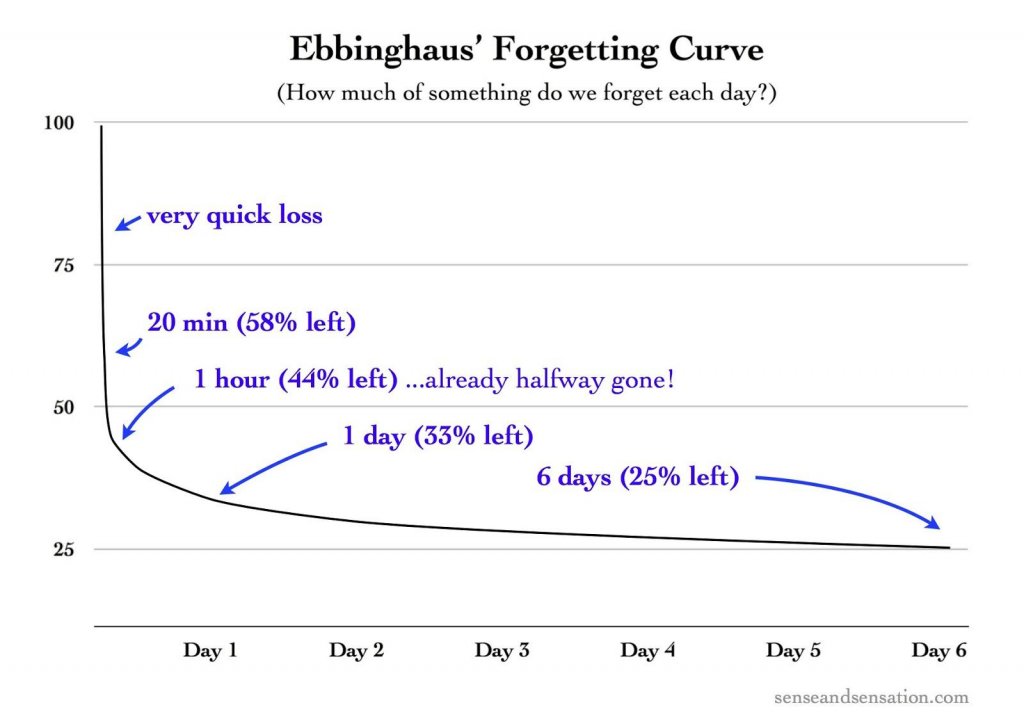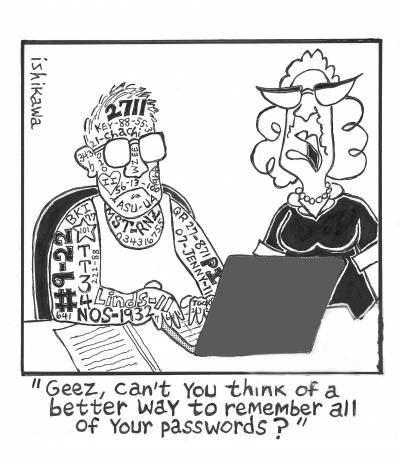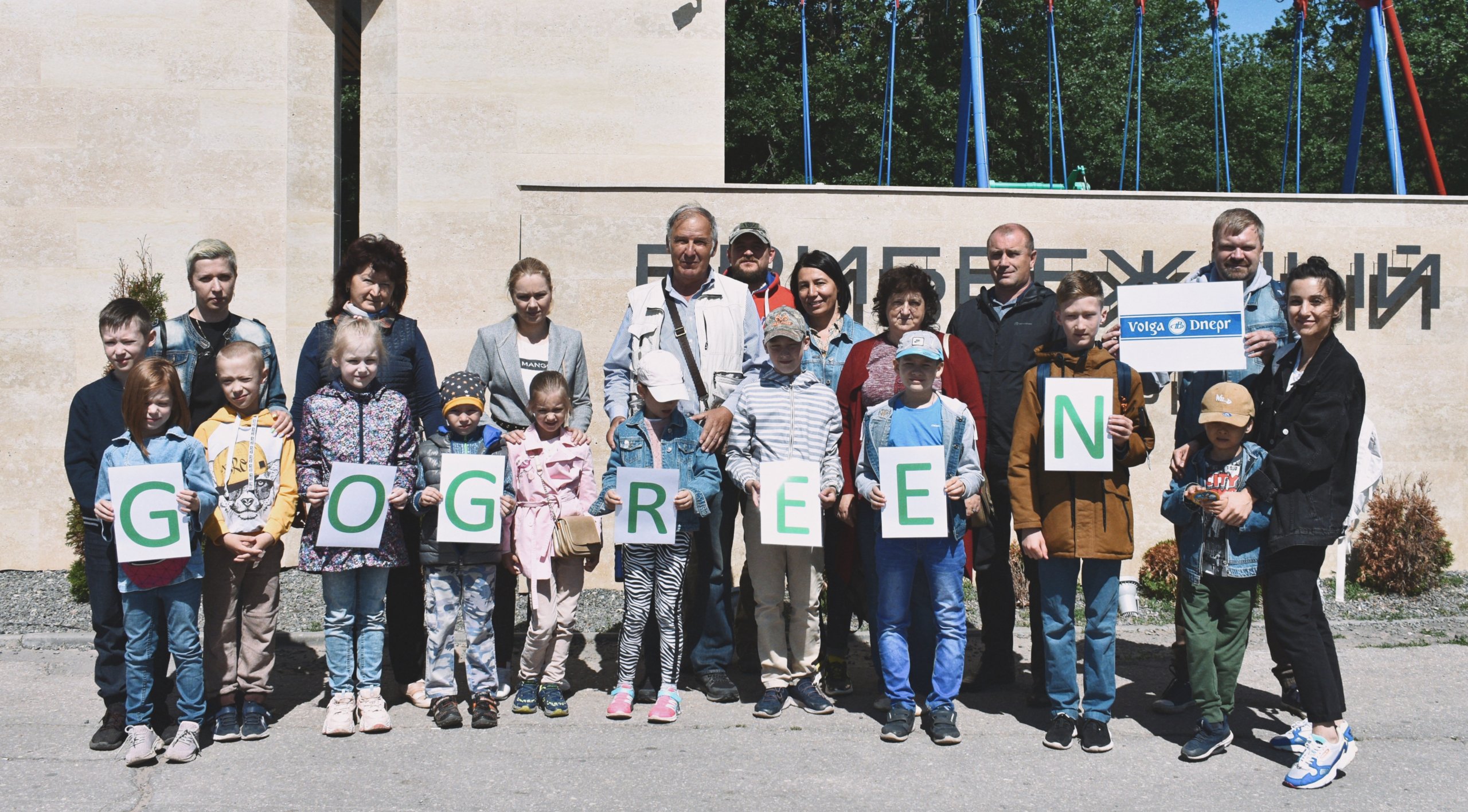Memory Secrets
Why do we forget things? Our brain is like a hard drive — the space is limited. It deliberately erases facts we would never need, this is how it protects us from overloading with information. That’s why all new data is stored in the short-term memory, not the long-term one. So, if you don’t repeat it or use it, you forget it very quickly.
How fast do we forget things?

A German psychologist, Hermann Ebbinghaus researched the memory and its mechanisms. His Forgetting Curve shows that just one hour after learning something new we forget more than half of the learned information. One day later we remember only about 30%.
Memorization Tools
There is a memorization technique called «Spaced Repetition». To keep some information in your head for a longer time, you need to try to put it into your long-term memory.
| How to memorize something quickly | How to memorize something for a long time | |||
| 1st repetition | RIGHT AFTER LEARNING | 1st repetition | RIGHT AFTER LEARNING | |
| 2nd repetition | AFTER 15-20 MINUTES | 2nd repetition | AFTER 20-30 MINUTES | |
| 3rd repetition | AFTER 6-8 HOURS | 3rd repetition | AFTER 1 DAY | |
| 4th repetition | AFTER 24 HOURS | 4th repetition | AFTER 2-3 WEEKS | |
| 5th repetition | AFTER 2-3 MONTHS | |||
Memorization Tips
- Try to understand what you learn. Make sure you can retell it using your own words.

- If there is too much information, learn the most necessary. Set the priorities.
- Remember position effect. Things that are at the beginning and the end are memorized the best. Use this effect to your advantage. Sort the information, so that the key parts are at the beginning and at the end.
- If you use Spaced Repetition technique, don’t return to the information between repetitions, do something different, let your brain relax.
- Learn opposite things. Opposites are easily memorized in pairs, for example “day-night”. This way you can build the connection between the things. If you forget one thing, the second one can help you recall.
- Build associations with things you are learning (smells, sounds, people, places). For example, divide the material into parts and learn each part in a different place at home/your city.
- Use “nail words”. Logically connect one learned thing to another. For example, if you need to memorize the French for “nail”, you should also look up “wall” and “hammer”.
- Make up stories. If you need to memorize a lot of information, try to put its pieces into a story with some kind of plot.
- Use different channels (eyes, ears) to memorize things. For example, first, read the information, than, record it and listen to it.
- Try to visualize the information, draw charts and pictures
Memory words — Remember/Memorize/Recall
Remember – помнить; I still can remember my first day at work. – Я до сих пор помню мой первый рабочий день.
Recall – вспомнить/вспоминать; I can’t recall his address. – Не могу вспомнить его адрес.
Memorize – запоминать; To memorize new words, use them in your own context. – Чтобы запомнить новые слова, используйте их в своем контексте.
Test yourself NOW! Choose the correct word.
- Do you remember/recall/memorize me?
- I have to memorize/remember/recall the list of dates for my history test.
- Please, recall/memorize/remember to call the doctor.
- 4. His name is so complicated. You have to repeat it a hundred times to recall/remember/memorize.
- I’d like you now to memorize/recall/remember the episode with your arrival to Los Angeles.




